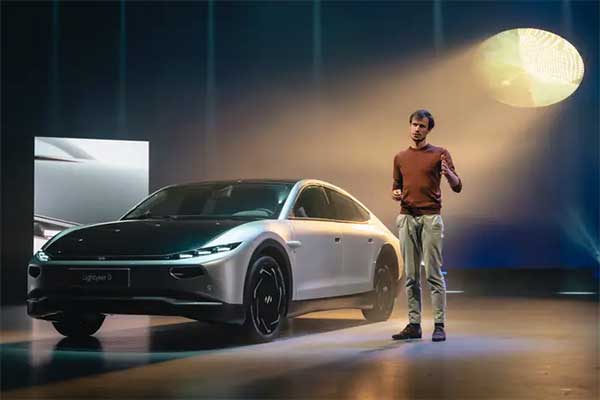Last week, Dutch solar-charged electric car developer Lightyear launched its production automobile, Lightyear 0, touted as the world’s first solar car.
Lightyear 0 is scheduled to go into production in the autumn, with the first vehicle to be delivered as early as November.
Up to 946 units of this introductory model will be manufactured at USD 264,000 before the company moves to Lightyear’s next model, which is being designed for high volume production at lower prices.
Production of this next model is expected to begin in late 2024 or early 2025.
Lightyear explains that its car comes with five square metres of patented, double curved solar arrays and can charge itself with up to 70 kilometres (43.5m) of range per day in addition to its estimated 625 km range.
Drivers can thus use Lightyear 0 for their daily commute of 35 km for months in the summer (two months for the Netherlands and up to seven months for Spain or Portugal) without the need to plug into a charger.
“Today is the day we’ve all been waiting for since us five co-founders sat in a kitchen sketching out our dream of building the most sustainable car on the planet,” said Lightyear’s co-founder and chief executive Lex Hoefsloot. “In 2016, we only had an idea; we have a prototype three years later. Now, after six years of testing, iterating, (re)designing, and countless obstacles, Lightyear 0 is proof that the impossible is actually possible,” the CEO added.
—
Adapted from an article written by Plamena Tisheva of Renewables Now. Sourced via a partnership with the publication.








Comments